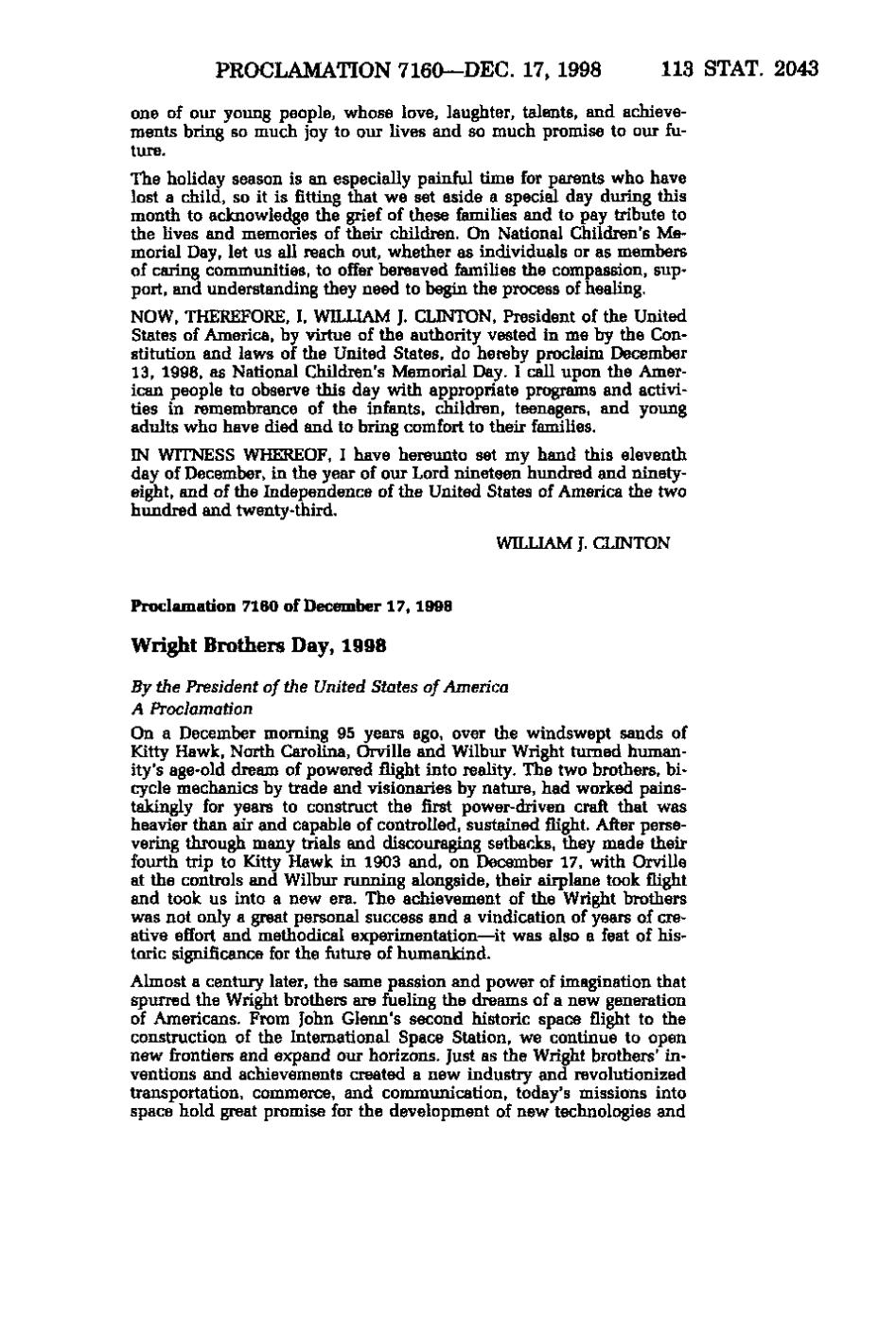PROCLAMATION 7160—DEC. 17, 1998 113 STAT. 2043 one of our young people, whose love, laught(5r, talents, and achievements bring so much joy to our lives and so much promise to our future. The holiday season is an especially painful time for parents who have lost a child, so it is fitting that we set aside a special day during this month to acknowledge the grief of these families and to pay tribute to the lives and memories of their children. On National Children's Memorial Day, let us all reach out, whether as iniiividuals or as members of caring communities, to offer bereaved families the compassion, support, and understanding they need to begin the process of healing. NOW, THEREFORE, I, WILLIAM J. CLINTON, President of the United States of America, by virtue of the authority vested in me by the Constitution and laws of the United States, do hereby proclaim December 13, 1998, as National Children's Memorial Day. I call upon the American people to observe this day with appropriate programs and activities in remembrance of the infants, children, teenagers, and yoimg adults who have died and to bring comfort to their families. IN WITNESS WHEREOF, I have hereimto set my hand this eleventh day of December, in the year of our Lord ninetsen hundred and ninety- eight, and of the Independence of the United States of America the two hundred and twenty-third. WILLIAM J. CLINTON Proclamation 7160 of December 17, 1998 Wright Brothers Day, 1998 By the President of the United States of America A Proclamation On a December morning 95 years ago, over the windswept sands of Kitty Hawk, North Carolina, Orville and Wilb\ir Wright tinned humanity's age-old dream of powered flight into reality. The two brothers, bicycle mechanics by trade and visionaries by nature, had worked painstakingly for years to construct the first power-driven craft that was heavier than air and capable of controlled, sustained flight. After persevering through many trials and discouraging setbacks, they made their foiirth trip to Kitty Hawk in 1903 and, on December 17, with Orville at the controls and Wilbur running alongside, their airplane took flight and took us into a new era. The achievement of the Wright brothers was not only a great personal success and a vindication of years of creative effort and methodical experimentation—it was also a feat of historic significance for the future of hiunankind. Almost a century later, the same passion and power of imagination that spurred the Wright brothers are fueling the dreams of a new generation of Americans. From John Glenn's second historic space flight to the construction of the International Space Statitm, we continue to open new frontiers and expand our horizons. Just as the Wright brothers' inventions and achievements created a new industry and revolutionized transportation, commerce, and communication, today's missions into space hold great promise for the development of new technologies and
�
